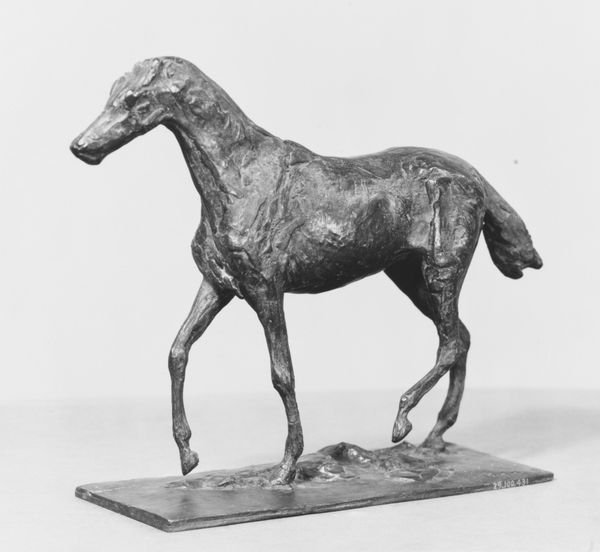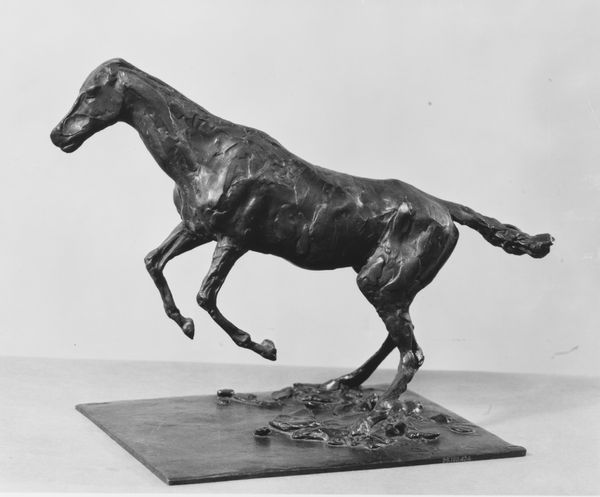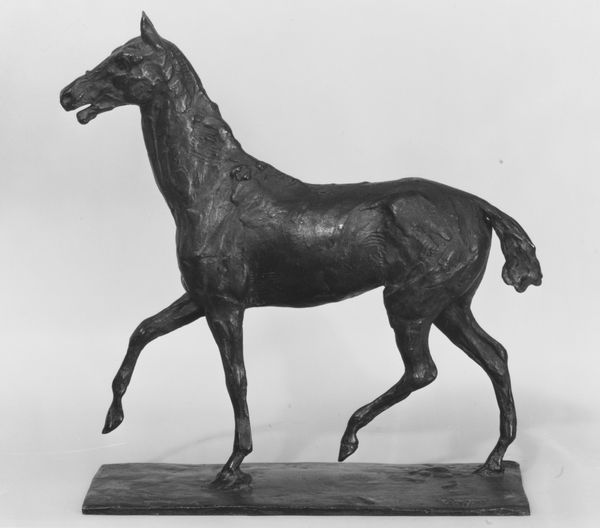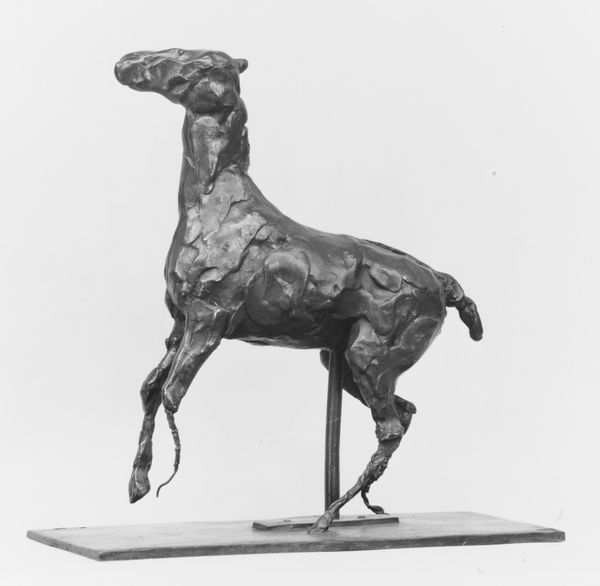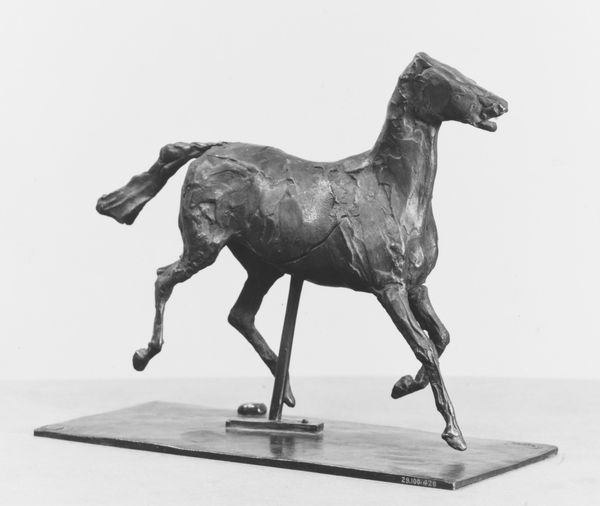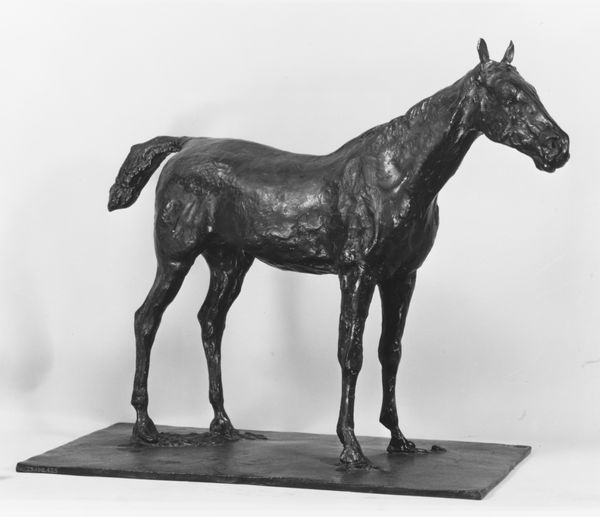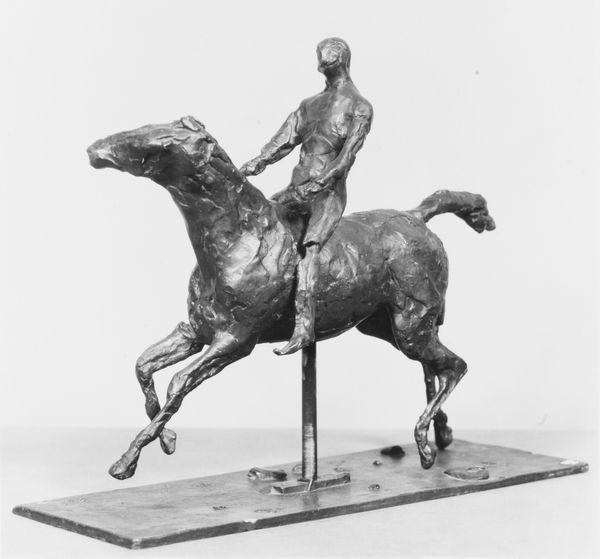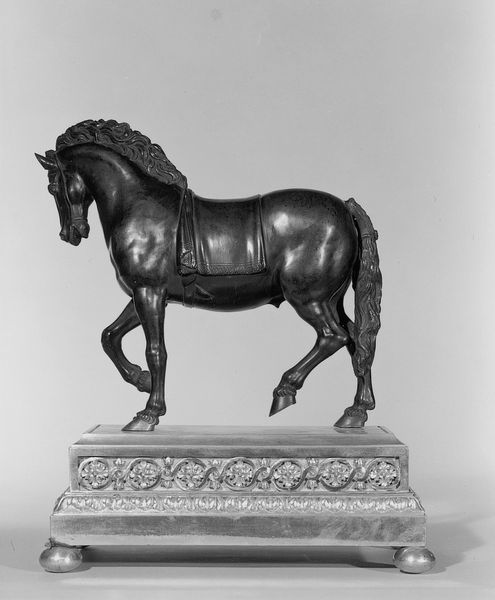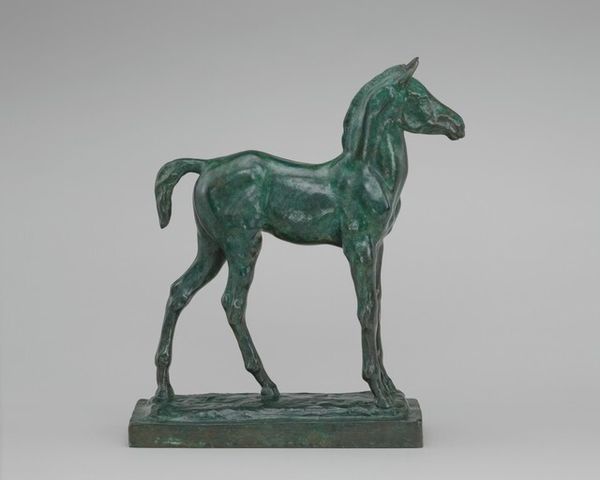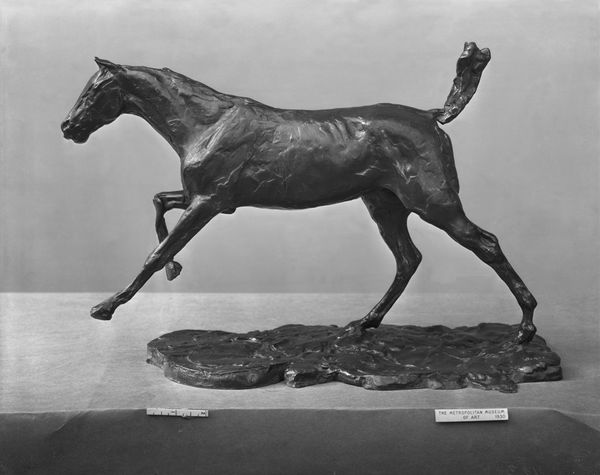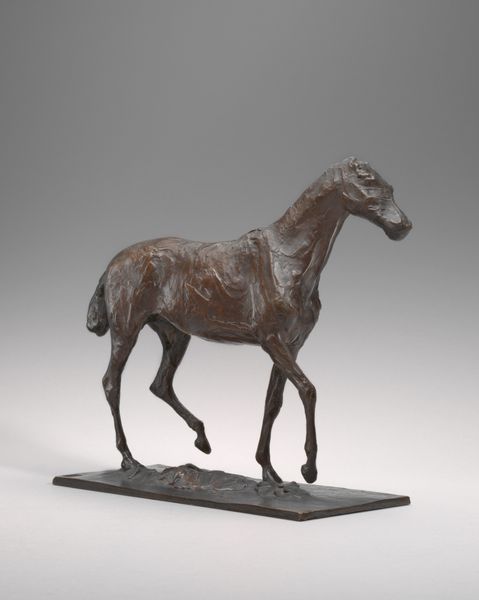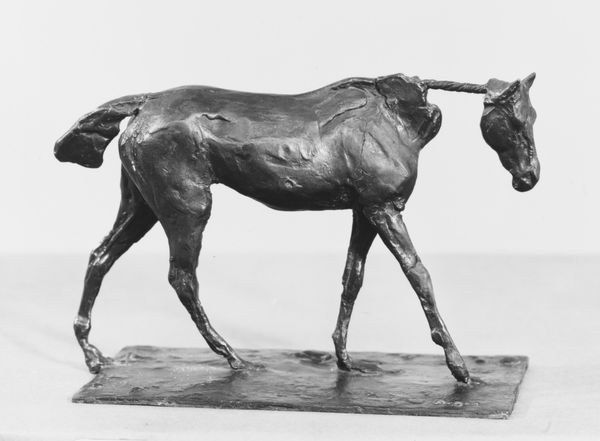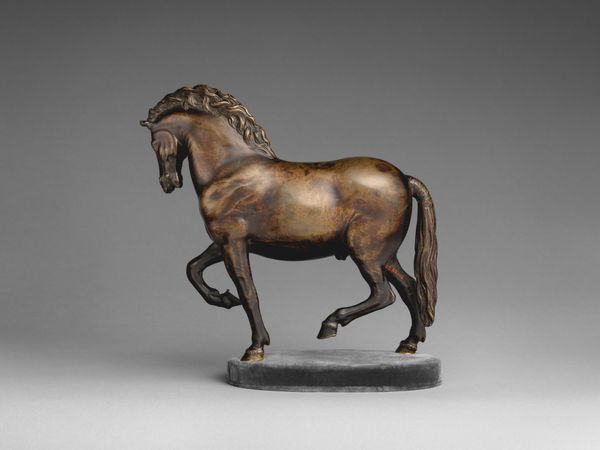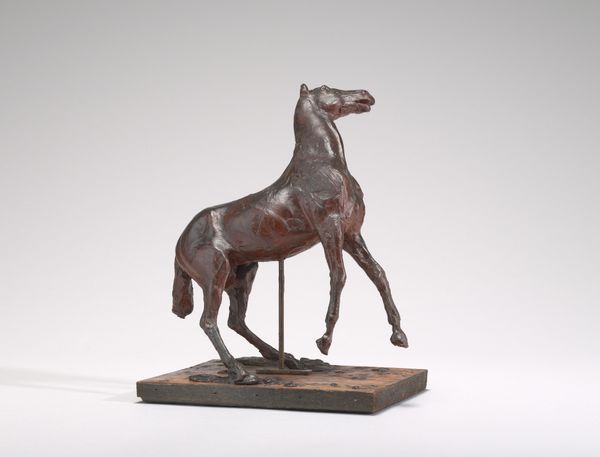
bronze, sculpture
#
impressionism
#
sculpture
#
textured
#
bronze
#
figuration
#
sculpture
#
horse
#
decorative-art
#
natural form
Dimensions: 8-5/8 x 12-1/4 x 4-1/2 in. (21.9 x 31.1 x 11.4 cm.)
Copyright: Public Domain
Edgar Degas created this bronze sculpture, "Study of a Mustang," sometime during his career, now housed at the Metropolitan Museum of Art. The initial visual impression is one of textured, almost raw materiality, with the rough surface of the bronze creating a dynamic play of light and shadow across the horse's form. The overall composition, with its emphasis on line and simplified forms, suggests a focus on capturing the essence of the animal's posture and movement. Degas's choice of bronze and his handling of the material serve to underscore the work's formal qualities. The textured surface destabilizes any sense of classical perfection. The sculpture can be seen as a semiotic system in which the horse, the bronze, and the visible marks of the artist's hand combine to communicate ideas about form, perception, and representation. Ultimately, the beauty of the Mustang lies in its materiality. The bronze is both an aesthetic choice and a philosophical statement. It invites us to consider how art can challenge fixed meanings and engage with new ways of seeing and understanding the world around us.
Comments
No comments
Be the first to comment and join the conversation on the ultimate creative platform.
